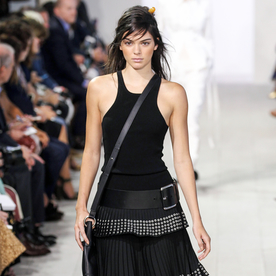
When Stephanie Seymour called Kendall Jenner and Gigi Hadid “bitches of the moment,” Kendall didn’t take it kindly, nor did Gigi’s mother, Yolanda Hadid. According to Kendall, Seymour is a “cyber bully” who should empower the new guard, rather than tearing them down. But this begs a larger question. What exactly is a “supermodel” and is Kendall actually on the list?
First, attaching the word “super” in front of “model” is a ridiculous trend that somehow stuck, and if you disagree, take a moment to put it in front of other professions. How about “superdentist” or “superaccountant” or “superlawyer.” It’s a coined, immature replacement for “top ten.” And if these girls are in fact the “bitches of the moment,” is that a bad thing? We could say the same about anyone in their prime. If the objection is to having a reputable family to pave your path, I’d argue that connections exist in every industry, and no one objects to the Hustons, the Barrymores, or the Fondas.
The only decent argument I’ve heard thus far was made by Rebecca Romijn, who said that social media status does not predict the ability to sell clothes. She also astutely argued that the industry should be in front of celebrity, rather than behind it. If models are fielded through an Instagram following, for example, and musicians are fielded through YouTube clicks, then is anyone doing any actual work prior to the public’s response? In short, it’s lazy vetting. Perhaps Kendall’s strong reaction to Seymour’s dig is a punishment that did not fit the crime, but the old guard better get on board. It’s a new game, and if you can’t play it, you will lose.

